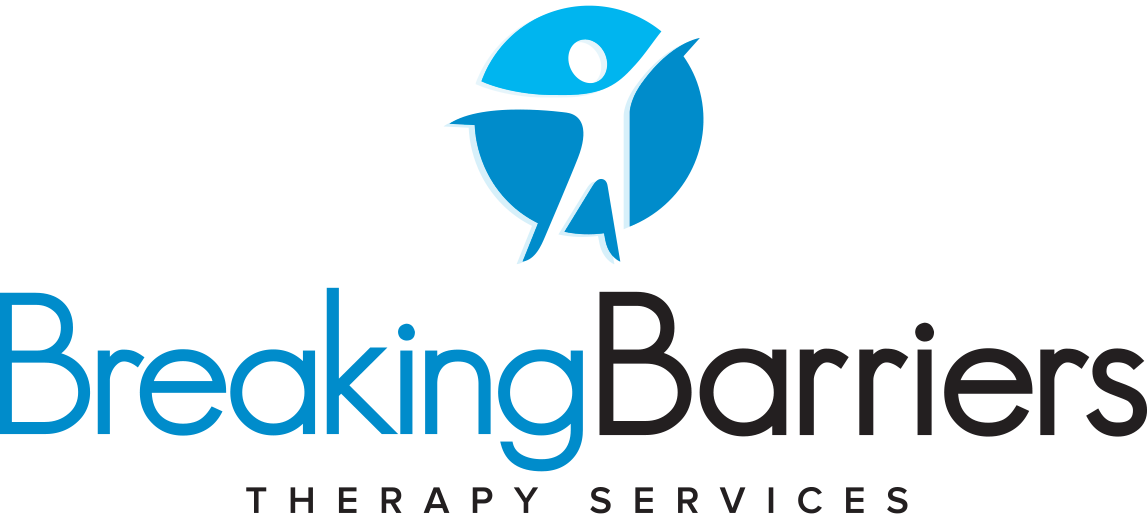
Occupational Therapy
Break barriers and make potential possible.
Gain physical and emotional independence
Strengthen motor skills
Improve daily function and activity
Autism
Fine Motor
Pre-Writing Shapes
Primitive Reflexes
What is Occupational Therapy (OT), and how does it work?
Fun, imaginative, and transformational
Occupational Therapy focuses on helping individuals of all ages develop, recover, or maintain the skills and abilities necessary for daily life activities. Occupational therapists use evidence-based approaches and techniques to address specific challenges and goals.
Whether individuals may have physical, cognitive, emotional, or developmental challenges, OT practitioners use an individualized approach, tailoring interventions to each person's unique needs and goals to develop greater independence so they can more easily participate in daily life activities.
Visual Perception
Handwriting
Splinting &
Range of
Motion
Sensory
Concussions & Traumatic Brain Injuries
Cutting
ADL’s
Picky Eaters
Through carefully structured sessions,
OT can help with:
Tasks such as dressing, bathing, grooming, feeding, and toileting - also known as - activities of daily living (ADLs)
Improving fine and gross motor skills such as handwriting, cutting with scissors, and tying shoelaces. It may involve regaining mobility from complex disabilities, brain injuries, orthopedic injuries, chronic pain, amputation, and mental health.
Reducing sensory stimuli responses that may be overwhelming by regulating reactions to touch, feel, and taste. This is especially important for individuals with autism spectrum disorder and sensory processing disorder.
Strengthening cognitive functions such as memory, problem-solving, organization, and planning. This is valuable for individuals with developmental delays/disorders/syndromes or recovering from traumatic brain injuries, strokes, or cognitive impairments.
Supporting mental health by addressing emotional well-being, coping strategies, and stress management. It helps individuals develop effective ways to manage anxiety, depression, and other mental health conditions.
And so much more
"Anything that occupies your time that you may struggle with,
occupational therapy can help with."
How We Help
How our Occupational Therapists help make potential possible
Through engaging and interactive sessions, we focus on developing essential skills for daily life tasks and meaningful participation in school, at home, at work, or in social environments.
Our strategies are designed for real-world interactions.
We collaborate with parents, caregivers, educators, and other professional disciplines. We offer in-house collaboration with ABA Therapy and Speech-Language Pathology. Together, we break down the walls that limit potential, creating a supportive network of compassion, understanding, and growth. Allow yourself to take a deep breath, embrace hope, and trust in the transformative power of Occupational Therapy.
We celebrate every milestone, fostering a sense of accomplishment, confidence, and joy.
Our Approach
We offer in-clinic sessions supported by dedicated therapists who are highly trained and up-to-date with the latest evidence-based practices in therapeutic care.
Initial evaluation
We conduct an initial evaluation to assess the individual's strengths, challenges, and specific goals. This assessment involves a series of formal and informal measures to gather information about medical history, current abilities, and limitations.
Treatment plan
Goals are established based on the evaluation and individual/parent or guardian interviews. Once a plan is outlined, the interventions and strategies will be customized to the individual's needs. It may include therapeutic activities, exercises, sensory integration techniques, emotional regulation, cognitive training, and more.
Progress monitoring & adjustments
Occupational therapists continually evaluate the individual's progress to determine the effectiveness of interventions and ensure meaningful gains in achieving goals.
Collaboration
Effective communication with other healthcare professionals, educators, caregivers, and family members is critical to delivering the best possible care. If required, we ensure support and guidance to those most involved in the individual's life.
Transition Planning
As an individual approaches goal mastery, the frequency of services may be reduced. The ultimate goal is independence. We support this transition on an individual basis, slowly weaning the individual out of services and into independence. The occupational therapist assists in the transition and provides recommendations for maintaining progress.
3 Key Benefits of Occupational Therapy
One 1
Improve Independence &
Quality of Life
One of the primary goals of occupational therapy is to help individuals develop, regain or improve their ability to perform daily activities and engage in meaningful function in everyday life.
Three 1
Preventative Care & Wellness
By promoting healthy development with age-appropriate activities and addressing potential risk factors early on, individuals of all ages learn to stay healthy, active and equipped to navigate their challenges more easily.
Two 1
Enhance Skill Development
To increase confidence, personal growth and development, occupational therapy aims to improve a wide range of skills, such as fine and gross motor skills, cognitive functions, sensory processing, and social skills. This skill development is especially important for children with developmental delays and adults recovering from injuries, surgeries, or those with cognitive impairments.
Ready to join our village?
3 simple steps to get started:
STEP 1
Schedule a Free Consultation
Contact us by phone or email to discuss how we can help decide the next steps forward.
STEP 2
Connect & Plan
Meet with our expert therapist for an assessment so we can customize an individual plan for your child.
STEP 3
Explore Possibilities
Follow the guidance and plan we create together. Start seeing positive changes and celebrate every success!

“We LOVE Breaking Barriers Therapy Services! Our daughter has a unique genetic condition and will most likely need ABA therapy, speech therapy, and occupational therapy for her whole life. Within Breaking Barriers, we have found medical providers who have embraced our daughter, loving and accepting who she is while also being able to teach and push her to expand her abilities and live to her fullest potential. I can't say enough about the good they have done for our daughter and how it will forever impact her quality of life for the better.”
Tyler C.
“We looked at several places and read a lot of reviews, trying to find the perfect place to help our son with his speech impediments. We ultimately decided to go with Breaking Barriers, and I am so grateful we did. They truly care about the kids.”
Bradley T.
Frequently Asked Questions about ABA
-
Yes. We do. Please see details on Insurance & Grants.
-
Yes. A pediatrician referral will be necessary for all three services if you plan to use insurance. If you have concerns, you can be proactive by talking to your doctor today. They may email or fax the referral to us office@breakingbarrierstherapy.com or 8013418724
If you are utilizing our private pay services, a physician referral is unnecessary; however, if you choose to use insurance, you will need a physician referral.
-
Whether you contact BBTS because you’ve received a doctor’s diagnosis or you’re concerned about the way your child is developing, communicating, or behaving, BBTS is happy to offer a complimentary in-person or over-the-phone consultation.
During the consultation, you are given the opportunity to discuss your concerns and services you are interested in. After learning about your needs, BBTS will walk you through the therapeutic process and answer all your questions.
We will also review the logistics of costs, insurance, and grants (if applicable). An insurance benefits check reveals the projected costs, so there are no surprises. If it’s determined that your child can benefit from speech, occupational, or behavior therapies, BBTS will schedule an evaluation.
-
During the evaluation, you and your child (or the person) will meet with the evaluating therapist. The therapist will gather information through guardian interviews, formal and informal measures, and strategic play (where appropriate). During this time, they will discuss your goals and concerns. Once the evaluation is complete, the therapist will write an evaluation report of their findings and develop a treatment plan.
-
The length of time an individual requires therapy varies from case to case; however, it is the goal at BBTS to provide the skills required to succeed. The ultimate goal is to fade out therapy as soon as appropriate.
-
Session frequency will vary between services and is customized to the child’s needs. After an evaluation, the therapist will provide you with a prescription for therapy, indicating how often the therapist deems it appropriate for the individual to make effective progress. Frequency is reassessed often throughout the therapeutic journey.


















